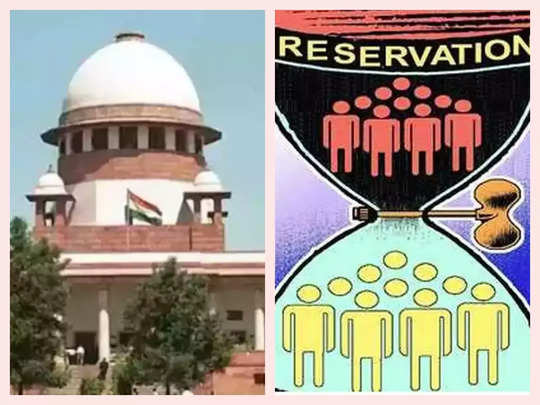In 1985, Justice Chinnappa Reddy ruled that quotas should be utilised for equality, not charity. His ruling explains the social justice goals of Indian reservations clearly and movingly. The fact that the judiciary, which had previously rejected such notions of social justice, finally accepted the view of politicians and the majority of Indians regarding the need for vertical reservations in jobs and education to create a truly equal India is a landmark decision that will continue to symbolise this.

Consider the Supreme Court’s ruling in Janhit Abhiyan v Union of India (2022), which upheld the 103rd amendment in the context of reservations for economically poorer sector (EWS). By upholding the 103rd amendment, the Court implied such reservations are for charity, not parity. All three majority justices said the 103rd amendment didn’t violate the Constitution’s principles. Justices Bela Trivedi and Burjor Pardiwala said they hoped reservations will end soon and lead to a world without castes.
The three majority judges conclude that the 50% vertical reservation ceiling is not a Constitutional requirement and that economic variables can be utilised to reserve jobs and educational seats (whether in government or private educational institutions). While the Court’s final judgement wasn’t contested, it begs the question of whether it will be as lenient of over 50% SC/ST/OBC reservations.
Justice Ravindra Bhat’s dissenting ruling (for himself and Chief Justice of India U U Lalit) does not rule out economic reservations. They decide the 103rd amendment is illegal since it didn’t include SC/ST/OBC in EWS reservation. This conclusion is based on a nuanced interpretation of Articles 14–17 of the Constitution, which mandate substantive equality in society. The dissenting opinion contends that barring SC/ST/OBC members access to EWS quota violates the equality law since it creates an artificial boundary between similarly deprived persons based on caste alone. The minority view is more constitutionally sound than the three majority judgments.
Majority and minority perspectives on EWS reservations are significantly different, yet they all seem to start with an inadequate understanding of reservations’ function in fostering social justice.

Even the minority opinion’s definition of equality misses the 103rd amendment’s problem. Even if the 103rd amendment had included SC/ST/OBC groups in the ambit of EWS reservations and a practical method had been found to harmonise with the existing reservations, it is improbable that any economically poor person would have been able to use them. Even with EWS status, candidates from these groups face a social disadvantage against affluent applicants. This logic, which equates poverty and social prejudice and asserts both groups need reservations as “economically weaker components,” ignores poverty and social discrimination.
The judges’ unanimous agreement that economic considerations can justify job and education reservations shows they don’t grasp the policy’s goal. Reservations are considered as another poverty alleviation solution without addressing structural imbalances that create poverty. No judgement mentions social fairness or the need to end caste. Even “castelessness,” as defined in Justice Trivedi’s ruling, is a “upper caste” notion in which the outward markers of caste are denied or ignored but the underlying benefits and disadvantages remain.
Viewing reserves as charity rather than equity has ramifications beyond what is legally allowable for EWS quotas. This approach has influenced recent choices about women’s promotions and Adivasi teachers in tribal areas. It could set a detrimental precedent for subclassification inside restricted categories.

